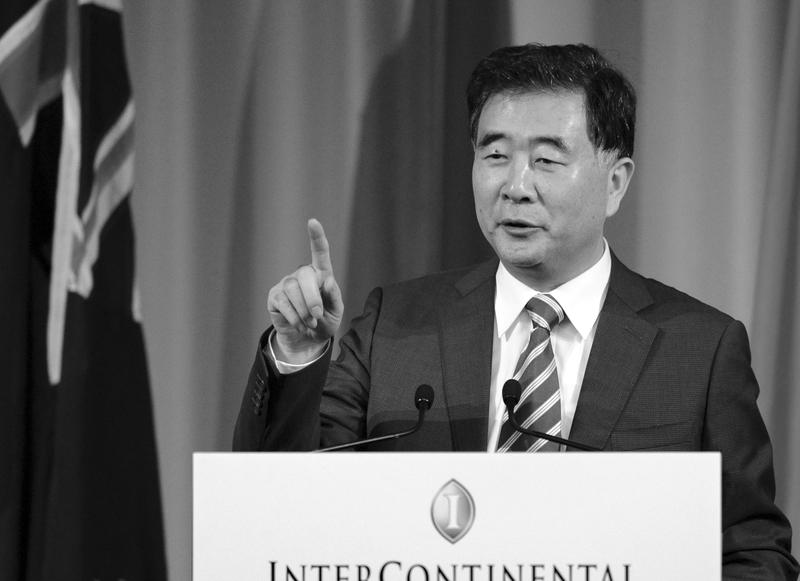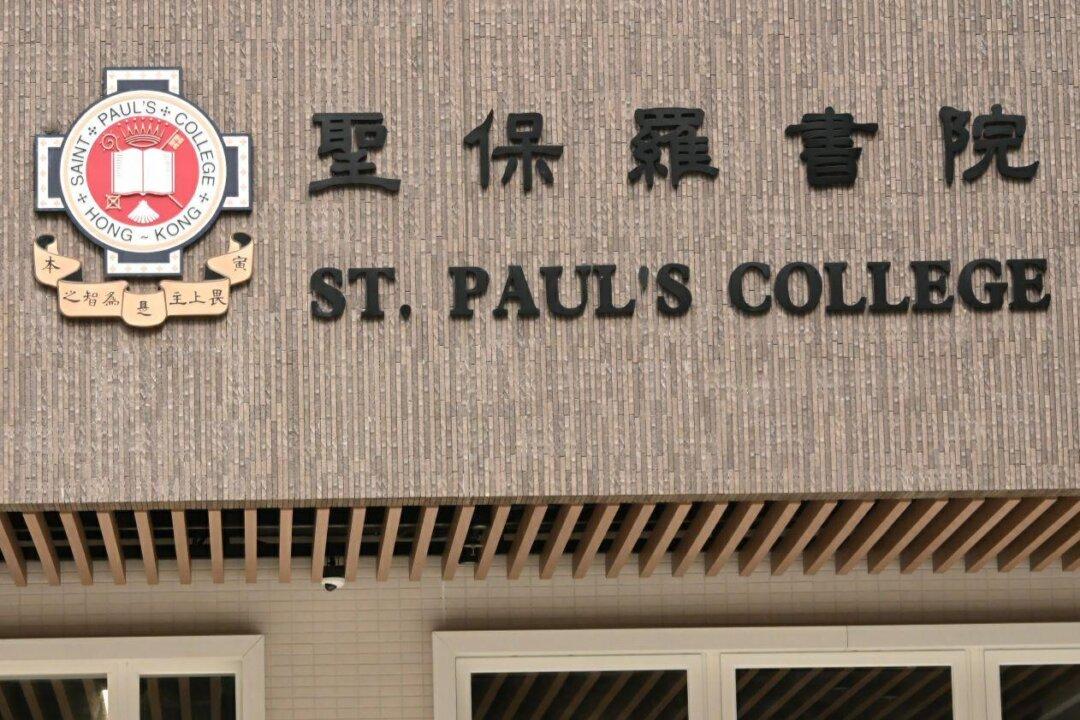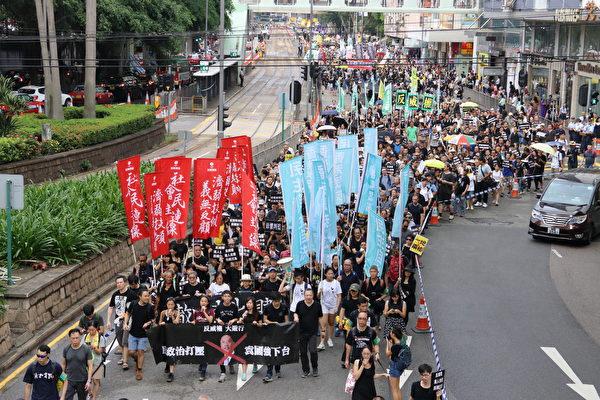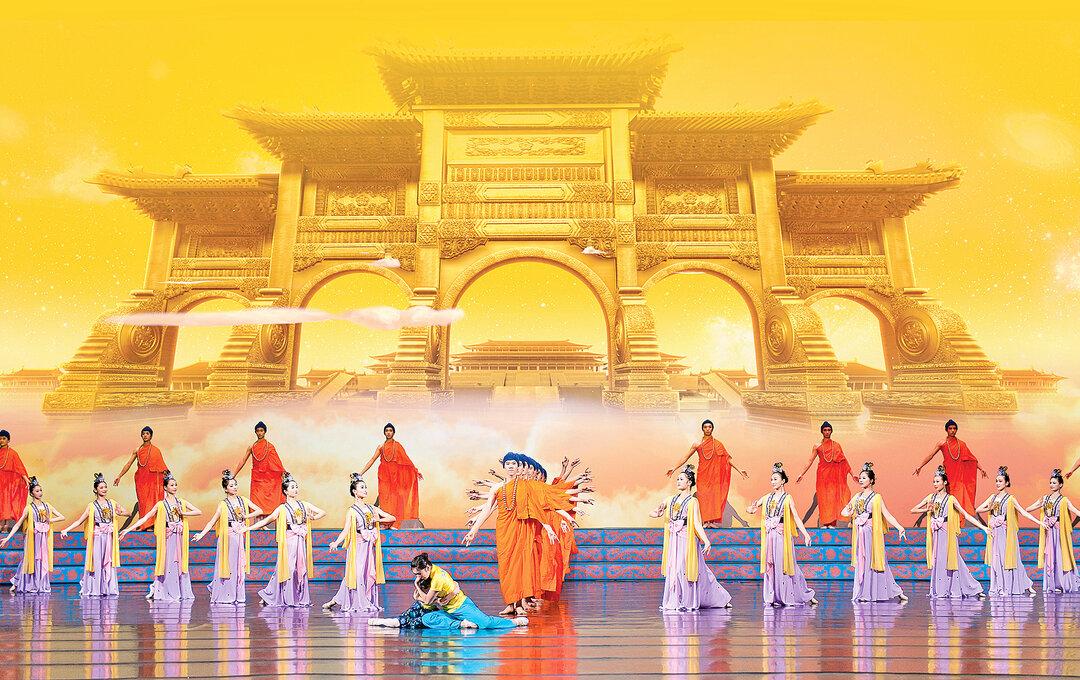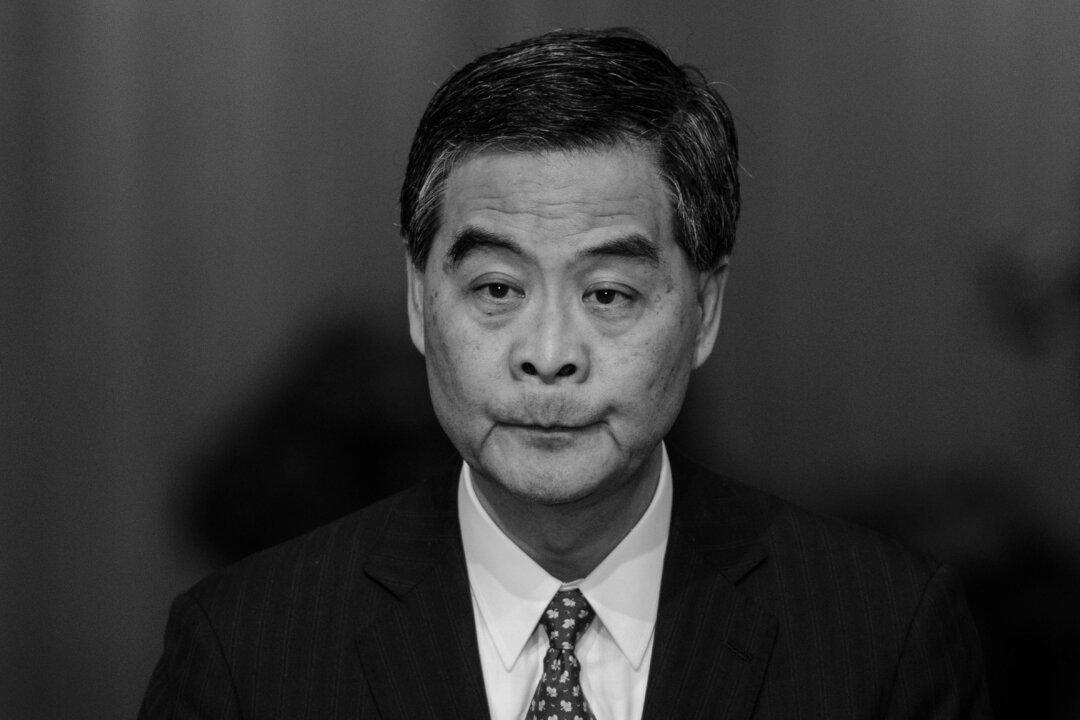HONG KONG—The very different treatment state-run media gave to visits to Shenzhen by two officials reflects a behind-the-scenes power struggle over the issue of Hong Kong.
Shenzhen City in southern China’s Guangdong Province is located right next to Hong Kong. Chinese Vice Premier Wang Yang, a supporter of current CCP leader Xi Jinping, visited Shenzhen and nearby cities for two days in September to inspect foreign trade-related work, according to the Chinese Communist Party-mouthpiece Nanfang Daily.
Official media made high-profile reports on the trip. Wang was accompanied on his tour by Guangdong Province secretary Hu Chunhua and governor Zhu Xiaodan.
Wang’s other recent excursions have also been reported in news columns by the state-run news agency Xinhua, under the headings “Wang Yang Activity Reports” and “Important Event Reports.” Wang has made these frequent media appearances just as Occupy Central, a nonviolent movement for universal suffrage in Hong Kong, was about to take place.
Meanwhile Zhang Dejiang, a member of the CCP’s Politburo Standing Committee, the director of the State Council’s Hong Kong and Macau Affairs Office, and a supporter of former CCP leader Jiang Zemin, went to Shenzhen in July this year.
Zhang spent three days there meeting with Hong Kong Chief Executive Leung Chun-ying and members of Hong Kong’s pro-establishment camp, but official media never reported it.
Hong Kong is currently in a critical political situation as its citizens fight to gain universal suffrage for their next Chief Executive election. The media’s different treatment of Zhang and Wang reveals an intense power struggle in Beijing.
Sources have indicated that the faction of the CCP loyal to former Party leader Jiang Zemin is purposely stirring up chaos in Hong Kong to make trouble for the faction loyal to current Party leader Xi Jinping. It has been speculated that Wang is trying to prevent the Jiang faction from further aggravating the situation in Hong Kong.
Political Battleground
On Aug. 31, the CCP’s National People’s Congress (NPC) Standing Committee denied Hong Kong people true universal suffrage. As a result, disgruntled Hong Kongers have launched protests and student strikes, and the Occupy Central movement demanding universal suffrage is on the verge of breaking out.
A source reported that when Zhang went to Shenzhen, he personally summoned and deployed Guangdong underground CCP members and gang groups. He also decided to hold an Anti-Occupy Central parade, which took place on Aug. 17, Jiang Zemin’s birthday.
Zhang’s tactics are thought to be aimed at infuriating the Hong Kong public. Similarly, Zhang helped write the June 10 white paper that angered Hong Kongers by stating that Hong Kong only has as much independence as China is willing to give it.
On Sept. 16, Zhang met with a delegation of the Hong Kong Federation of Trade Unions (FTU) in Beijing. During the meeting, he said the NPC’s decision on universal suffrage has “the highest legal authority” and “cannot be shaken.” Official media filtered out these two sensitive comments.
Shi Cangshan, a China expert based in Washington, D.C., said Zhang’s activity is meant to tear Hong Kong apart, intensify social conflicts in Hong Kong, and challenge the Xi faction, which is in the process of eliminating the forces of Jiang faction.
“When Zhang Dejiang met with the Hong Kong Federation of Trade Unions, the most sensitive remarks were filtered out by Xi authorities,” Shi said.
“This indicates that Xi’s views on political reform for Hong Kong are different from those of Zhang. Officials serving Xi deliberately made the differences public, which is clearly to send signals to the Hong Kong people.”
Zhang and other Jiang faction members have turned Hong Kong into Beijing’s political battlefield. This is causing the Hong Kong pro-establishment camp to fall into an unprecedented split.
The Heung Yee Kuk, or Rural Council, boycotted Zhang’s anti-Occupy Central parade. Legislative Council (LegCo) president Jasper Tsang Yok-sing, former Secretary for Justice Elsie Leung Oi-sie, and other prominent figures of the pro-establishment camp voiced different opinions from that of the Jiang faction after the NPC shut the door on the political reform package for universal suffrage.
For example, Tsang has repeatedly stressed that the central Chinese government should take some responsibility for the failure of the reform package. Elsie Leung recently indicated that the NPC’s decision concerning the nominating committee for the Hong Kong Chief Executive is not unchangeable.
Translated by Susan Wang. Written in English by Sally Appert.
